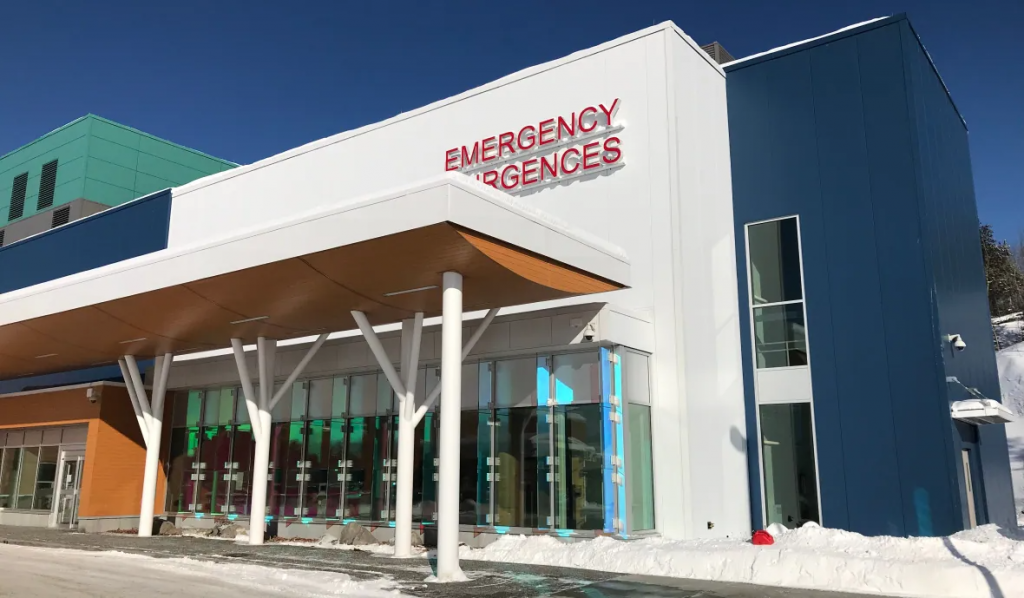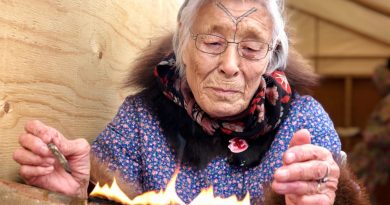Burnout, Indigenous reconciliation on agenda of new Yukon Medical Association pres.

Dr. Alex Kmet took on new role after the association’s annual general meeting last weekend
The new head of the Yukon Medical Association (YMA) says physician recruitment and retention, reconciliation with Indigenous communities, and the creation of new territorial health authority are some of the things he’s focused on as he begins in his new role.
Dr. Alex Kmet became YMA president at the organization’s annual general meeting on the weekend. He took over the position from Dr. Ryan Warshawski.
Physician burnout was a common theme at the weekend gathering of health-care workers. Kmet said that’s directly linked to primary care shortages.
“Professional satisfaction in any location is directly linked to how likely someone is willing to move to that place, and how likely they are to stay,” Kmet said.
“The Yukon’s been one of the fastest growing jurisdictions in the country and the number of physicians who we have here living and working here on a full-time basis has not kept up with the rate of population growth that we’ve been experiencing.”
Lack of access to family doctors
According to the YMA, there are an estimated 3,000 Yukoners who don’t currently have a family doctor.
Kmet said a new agreement between the medical association and the territorial government, should help “support and incentivize office-based primary care.”
The deal, reached last month, allows physicians running a practice in Whitehorse to be eligible for reimbursements to help pay for the expenses of running an office as well as help paying the overhead costs.
“We’re hopeful that that’ll be a key piece in reducing the number of Yukoners who don’t have a family physician,” Kmet said.
Kmet also advocates for national licensing for physicians in Canada, to allow them to freely move and work anywhere in the country. Right now, physicians must seek licences with different regulatory bodies if they want to move. Kmet calls that a “bureaucratic and arduous process,” and an impediment.
“One of our key pieces for attracting doctors to come here in the first place is letting them know it’s an option, and letting them experience it — and national licensure would certainly do that.”
Support for new health authority
Kmet also supports the creation of a new health authority in Yukon, similar to what most other jurisdictions in Canada have. Health authorities are responsible for administering and delivering public health care.
Creating such a body was among the recommendations in 2020’s “Putting People First” report on Yukon’s health-care system, and the territorial government has signalled that it’s working toward that.
Kmet said YMA supports the creation of a health authority, “so long as we’re at the table informing what a health authority looks like.”
He said it could help eliminate “silos” within the territory’s health-care system.
“One of the main areas we see where silos become a major barrier are in times of care transition, so when people move between home and the hospital,” he said.
“When you need a higher level of care, silos really make those transitions very difficult.”
Priority on reconciliation
Kmet also highlights reconciliation as a priority for the medical association. The weekend meetings involved some Indigenous elders who spoke about residential schools, intergenerational trauma and about culture as medicine.
Kmet said it’s important for physician and health-care workers to understand the larger context when addressing illness among Indigenous patients. He also wants the medical association to work more closely with First Nations to advocate for larger systemic changes to better meet their needs.
-With files from Elyn Jones
Related stories from around the North:
Canada: Paramedics arrive in Nunavik to help with regional health worker shortage, Eye on the Arctic
Greenland: Greenland to reduce services amidst staffing shortages in health care system, Eye on the Arctic



